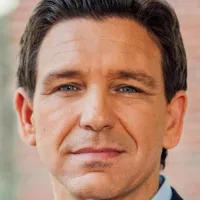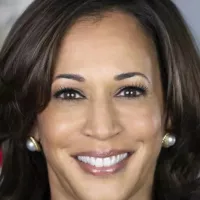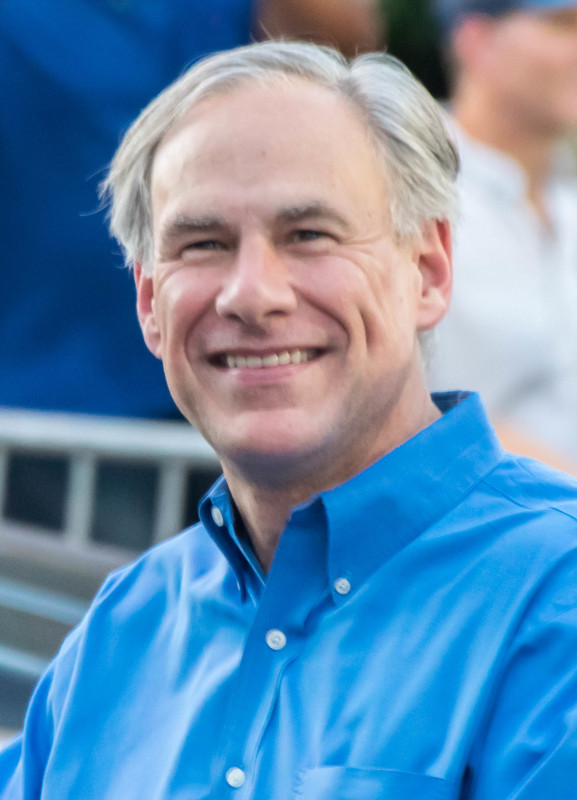1956: Inspiration for Monuments
In 1956, the Cecil B. DeMille film 'The Ten Commandments' inspired the Fraternal Order of Eagles to donate thousands of similar monuments to cities and towns across the nation.
November 13, 1957: Birth of Greg Abbott
On November 13, 1957, Gregory Wayne Abbott was born. He is an American politician, attorney, and jurist who has served as the 48th governor of Texas since 2015.
1981: Graduation and Marriage
In 1981, Greg Abbott earned a Bachelor of Business Administration in finance from the University of Texas at Austin. While attending UT Austin, he met Cecilia Phalen, and they married in 1981.
1981: Marriage to Cecilia Phalen Abbott
In 1981, Greg Abbott married Cecilia Phalen Abbott in San Antonio. Cecilia, the granddaughter of Mexican immigrants, became the first Latina to be First Lady of Texas since Texas joined the union.
July 14, 1984: Paralyzed by falling tree
On July 14, 1984, Greg Abbott was paralyzed below the waist at age 26 when an oak tree fell on him while he was jogging in River Oaks, Houston, after a storm. He had steel rods implanted in his spine and underwent rehabilitation and has used a wheelchair ever since.
1984: Juris Doctor Degree
In 1984, Greg Abbott earned his Juris Doctor degree from the Vanderbilt University Law School, marking a significant milestone in his education and career path.
1984: Private Practice at Butler and Binion, LLP
In 1984, Greg Abbott started working for Butler and Binion, LLP, marking the beginning of his private practice career.
1992: End of Tenure at Butler and Binion, LLP
In 1992, Greg Abbott's tenure at Butler and Binion, LLP came to an end, marking a transition in his private practice career.
1995: Appointment to Texas Supreme Court
In 1995, Greg Abbott was appointed as a Justice of the Texas Supreme Court by then-governor George W. Bush, marking a significant advancement in his judicial career.
1996: Elected to Texas Supreme Court
In 1996, Greg Abbott was elected to the Texas Supreme Court for a two-year term. He faced a challenge from Libertarian John B. Hawley of Dallas and won with 84% of the vote.
1998: Opponent in Supreme Court Election
In 1998, David Van Os was Greg Abbott's Democratic opponent in the election for state Supreme Court.
1998: Re-elected to Texas Supreme Court
In 1998, Greg Abbott was re-elected to the Texas Supreme Court for a six-year term, defeating Democrat David Van Os with 60% of the vote.
2001: Resignation and Campaign Shift
In 2001, Greg Abbott resigned from the Texas Supreme Court to run for lieutenant governor of Texas. After John Cornyn vacated the attorney general's post, Abbott switched his campaign to run for attorney general in 2002.
2001: Returns to Private Practice
In 2001, after resigning from the Supreme Court, Abbott returned to private practice and worked for Bracewell & Giuliani LLC. He also became an adjunct professor at University of Texas School of Law.
December 2, 2002: Sworn in as Attorney General
On December 2, 2002, Greg Abbott was sworn in as the Attorney General of Texas, following John Cornyn's election to the U.S. Senate.
2002: Election as Attorney General
In 2002, Greg Abbott was elected as the third Republican to serve as Attorney General of Texas since the Reconstruction era, receiving 57% of the vote.
2003: Support for Medical Malpractice Damage Caps
In 2003, Greg Abbott supported the Texas Legislature's move to cap non-economic damages for medical malpractice cases at $250,000, without adjustments for rising cost of living.
March 2005: Argument before the Supreme Court
In March 2005, Greg Abbott delivered oral argument before the United States Supreme Court on behalf of Texas, defending a Ten Commandments monument on grounds of the Texas State Capitol in Van Orden v. Perry. He argued that "The Ten Commandments are a historically recognized system of law."
December 21, 2005: New Allegations Added to Sony BMG Lawsuit
On December 21, 2005, Greg Abbott added new allegations to his lawsuit against Sony-BMG, claiming the MediaMax copy protection technology violated Texas's spyware and deceptive trade practices laws. He alleged that even if consumers rejected the licensing agreement, spyware was secretly installed on their computers, posing security risks for music buyers.
2005: Advocacy for Ten Commandments Display
In 2005, as Attorney General, Greg Abbott successfully advocated for the Texas State Capitol to display the Ten Commandments in the U.S. Supreme Court case Van Orden v. Perry.
November 7, 2006: Re-election to Attorney General
On November 7, 2006, Greg Abbott was re-elected to a second term as Attorney General, defeating civil rights attorney David Van Os with 60% of the vote.
2006: Re-election as Attorney General
In 2006, Greg Abbott was re-elected as Attorney General of Texas, receiving 60% of the vote.
2010: Elected to Third Term as Attorney General
In 2010, Greg Abbott was elected to a third term as Attorney General, defeating the Democratic nominee, attorney Barbara Ann Radnofsky, with 64% of the vote.
2010: Re-election as Attorney General
In 2010, Greg Abbott was re-elected as Attorney General of Texas for a third term, receiving 64% of the vote and becoming the longest-serving attorney general in state history.
2011: Fundraising Success
In the first six months of 2011, Greg Abbott raised more money for his campaign than any other previous Texas politician, reaching $1.6 million.
July 2013: Announcement of Candidacy for Governor
In July 2013, Greg Abbott announced his candidacy for governor of Texas in the 2014 election, shortly after Governor Rick Perry announced he would not seek a fourth full term.
August 2013: Monthly and lump sum payment amounts
As of August 2013, Greg Abbott's monthly payment from his settlement was US$14,000, and the three-year lump sum payment was US$400,000, all tax-free.
2013: Lawsuits Against the Obama Administration
In 2013, Greg Abbott stated that his job involved suing Barack Obama. Abbott filed 31 lawsuits against the Obama administration, challenging various federal policies and regulations during his tenure as attorney general and governor.
2013: Criticism of New York Gun Laws
In 2013, as attorney general, Greg Abbott criticized legislation enacted by New York State that strengthened its gun regulation laws by expanding an assault weapons ban and creating a high-capacity magazine ban.
February 2014: Argument Against NRA Lawsuit
In February 2014, Greg Abbott argued against a lawsuit brought by the National Rifle Association of America (NRA) to allow more people access to concealed carry of firearms, stating that doing so would disrupt public safety.
March 4, 2014: Republican Primary Win
On March 4, 2014, Greg Abbott won the Republican primary with 91.5% of the vote, paving the way for him to face State Senator Wendy Davis in the general election.
March 2014: Intervention in Lawsuits Against Baylor Scott & White Medical Center
In March 2014, Greg Abbott filed a motion to intervene on behalf of Baylor Scott & White Medical Center – Plano in three federal lawsuits against the hospital, defending the hospital against allegations of allowing Christopher Duntsch to perform neurosurgery despite knowing he was a dangerous physician.
2014: Election as Texas Governor
Elected in 2014, Abbott became the first Texas governor and third governor of a U.S. state to use a wheelchair.
2014: Defense of Texas's ban on same-sex marriage
In 2014, Greg Abbott defended Texas's ban on same-sex marriage, which a federal court ruled unconstitutional. As attorney general of Texas, he argued that the prohibition on same-sex marriage incentivized that children would be born "in the context of stable, lasting relationships."
2014: Gubernatorial Candidacy
In July 2013, Greg Abbott had announced his candidacy for the 2014 gubernatorial election.
2014: Legal strategy to dismantle climate change regulations
In early 2014, Greg Abbott participated in sessions at the U.S. Chamber of Commerce to devise a legal strategy aimed at dismantling climate change regulations.
January 20, 2015: Abbott Sworn in as Governor of Texas
On January 20, 2015, Greg Abbott was sworn in as the governor of Texas, succeeding Rick Perry. Abbott is the first governor of Texas and the third elected governor of a U.S. state to use a wheelchair.
March 15, 2015: Abbott Meets with Irish Taoiseach
On March 15, 2015, Governor Abbott held his first meeting with a foreign prime minister, meeting with the Irish Taoiseach Enda Kenny to discuss trade and economic relations.
April 2015: Abbott Orders State Guard to Monitor Jade Helm 15
In April 2015, Greg Abbott asked the State Guard to monitor the military training exercise Jade Helm 15 due to Internet-fueled suspicions of a hostile military takeover.
June 2015: Bill to bolster Texas border security
In June 2015, Greg Abbott signed a bill aimed at strengthening Texas's border security. This included hiring more state police officers, increasing the use of technology, and establishing intelligence operations units.
September 25, 2015: Injunction Order on Therapy Rate Cuts
On September 25, 2015, a temporary injunction order was obtained in litigation, barring the Texas Health and Human Services Commission (THHSC) from implementing therapy rate cuts that would have affected developmental therapies for children on Medicaid.
November 2015: Texas refuses Syrian refugees
In November 2015, Greg Abbott announced that Texas would refuse to accept Syrian refugees in response to the Paris terrorist attack that had occurred earlier that month.
December 2015: Abbott orders lawsuit to block refugee settlement
In December 2015, Greg Abbott directed the Texas Health and Human Services Commission to file a lawsuit against the federal government and the International Rescue Committee in an attempt to prevent refugee settlement. However, a federal district court ultimately struck down the lawsuit.
2015: Abbott Signs Pastor Protection Act
In 2015, Governor Abbott signed the Pastor Protection Act, allowing members of the clergy to refuse to marry same-sex couples if it violates their beliefs.
2015: Abbott Signs Campus Carry and Open Carry Bills
In 2015, Governor Abbott signed the campus carry (SB 11) and open carry (HB 910) bills into law, allowing licensed concealed handguns on public college campuses and licensed open carry of handguns in public areas.
2015: Obergefell v. Hodges
In 2015, the U.S. Supreme Court ruled in Obergefell v. Hodges that the 14th Amendment requires all states to recognize same-sex marriages and made same-sex couples eligible for state and federal benefits tied to marriage.
January 8, 2016: Abbott Calls for National Constitutional Convention
On January 8, 2016, Greg Abbott called for a national constitutional convention to address what he saw as abuses by justices of the United States Supreme Court.
May 17, 2016: Abbott Elaborates on Constitutional Convention Proposal
On May 17, 2016, Greg Abbott elaborated on his proposal for a national constitutional convention in a public seminar at the Hoover Institute.
October 2016: Explosive Package Mailed to Abbott
In October 2016, an explosive package was mailed to Greg Abbott, among others. The package did not explode when opened because it was not opened as intended.
December 2016: Campaign Funds
As of December of 2016, Greg Abbott had $34.4 million on hand for his campaign, of which he had raised $9 million during the second half of 2016.
2016: Abbott Calls for Convention of States
In 2016, Governor Abbott spoke to the Texas Public Policy Foundation, advocating for a Convention of States to amend the U.S. Constitution and proposing the Texas Plan to limit federal power and expand states' rights.
2016: Abbott Publishes Book
In 2016, Greg Abbott published his book titled "Broken But Unbowed," which recounts his personal story and views on politics.
2016: Support for Scott Pruitt as EPA head
In 2016, Greg Abbott supported Scott Pruitt's appointment as head of the Environmental Protection Agency (EPA), stating that they had teamed up on numerous lawsuits against the EPA.
2016: Urged Limitation of Obergefell v. Hodges Impact
In 2016, Greg Abbott urged the Texas Supreme Court to limit the impact of the U.S. Supreme Court's ruling in Obergefell v. Hodges, the 2015 case that legalized same-sex marriage, with regards to state and federal benefits tied to marriage.
2016: Open Carry Bill Goes Into Effect
In 2016, the open carry bill went into effect, allowing licensed open carry of a handgun in public areas and private businesses unless they display a "30.07" sign.
January 2017: Fundraising for Reelection
In January 2017, it was reported that Greg Abbott was raising funds for a 2018 reelection bid as governor, having $34.4 million on hand as of December 2016.
January 21, 2017: Intention to Run for Reelection
During the weekend of January 21, 2017, Greg Abbott stated his intention to run for reelection as governor.
January 27, 2017: Federal Judge Rules Against Texas Abortion Remains Law
On January 27, 2017, a federal judge ruled against the Texas law requiring abortion facilities to bury or cremate fetal remains, but the State of Texas vowed to appeal the ruling.
February 2017: Abbott blocks funding to Travis County
In February 2017, Greg Abbott blocked funding to Travis County, Texas, because of the county's recently implemented sanctuary city policy.
March 28, 2017: Confirmation of Reelection Bid
On March 28, 2017, Greg Abbott formally confirmed his intention to run for reelection as governor.
May 2017: Signing of Texas Senate Bill 4
In May 2017, Greg Abbott signed Texas Senate Bill 4 into law, targeting sanctuary cities. The bill imposed charges on county or city officials who declined to cooperate with federal officials and allowed police officers to inquire about the immigration status of individuals they detained.
May 27, 2017: CEOs of tech companies urge Abbott to not pass "bathroom bill"
In a letter dated May 27, 2017, the CEOs of 14 large technology companies, including Facebook, Apple, Microsoft, and Amazon, urged Greg Abbott not to pass what came to be known as the "bathroom bill": legislation requiring people to use the bathroom of the sex listed on their birth certificates, not the one of their choice.
June 6, 2017: Abbott Calls for Special Legislative Session
On June 6, 2017, Governor Abbott called for a special legislative session in order to pass several of his legislative priorities. This agenda was supported by Lieutenant Governor Dan Patrick.
July 14, 2017: Abbott Announces Reelection Campaign
On July 14, 2017, Greg Abbott formally announced his reelection campaign for governor of Texas.
November 5, 2017: Abbott Comments on Sutherland Springs Shooting
Following the November 5, 2017, Sutherland Springs church shooting, Greg Abbott urged historical reflection and compared the event to other "horrific events" throughout history, drawing criticism from the Anti-Defamation League.
2017: Abbott Signs Bill Allowing Faith-Based Groups to Deny Services
In 2017, Greg Abbott signed House Bill 3859, which allows faith-based groups working with the Texas child welfare system to deny services under circumstances that conflict with their religious beliefs, leading to criticism and travel bans from other states.
2017: Abbott Signs Bill Preventing Subpoena of Pastors' Sermons
In 2017, Greg Abbott signed Senate Bill 24 into law, preventing state or local governments from subpoenaing pastors' sermons, inspired by an anti-discrimination ordinance in Houston.
2017: Abbott Signs Bill Lowering Handgun Carry License Fees
In 2017, Greg Abbott signed into law a bill lowering handgun carry license fees.
2017: Legislation on adoption agencies refusing same-sex families
In 2017, Greg Abbott signed legislation to allow taxpayer-funded adoption agencies to refuse same-sex families from adopting children for religious reasons.
March 2018: Abbott privately opposed the "bathroom bill"
In March 2018, Byron Cook, the chairman of the House State Affairs committee who blocked the "bathroom bill", claimed that Greg Abbott privately opposed the bill.
April 2018: Purge of registered voters canceled
In April 2018, a purge of nearly 100,000 registered voters from Texas voter rolls was canceled after voting rights groups challenged the purge, and officials admitted that thousands of legal voters were wrongly flagged for removal.
2018: Rejection of climate change scientific consensus
As of 2018, Greg Abbott rejects the scientific consensus on climate change, stating that while the climate is changing, he does not accept that human activity is the primary cause.
2018: Abbott Consults on Gun Violence Prevention After Santa Fe Shooting
Following the 2018 Santa Fe High School shooting, Greg Abbott said he would consult across Texas in an attempt to prevent gun violence in schools.
2018: Reelection Bid
In January 2017, Abbott was raising funds for a 2018 reelection bid as governor
June 2019: Emails show Abbott drove voter purge
Emails released in June 2019 revealed that Greg Abbott was the driving force behind the effort to purge nearly 100,000 registered voters from Texas voter rolls.
June 2019: Abbott Signs Bill Allowing More Armed Teachers
In June 2019, Greg Abbott signed a bill allowing for more armed teachers in schools and creating "threat assessment teams" to identify potentially violent students.
June 2019: Repeal of Austin's ban on homeless camping
In June 2019, the city of Austin introduced an ordinance that repealed a 25-year-old ban on homeless people camping, lying, or sleeping in public.
August 2019: Abbott Responds to El Paso Mass Shooting
Following the mass shooting at a Wal-Mart in El Paso in August 2019, Greg Abbott convened a domestic terrorism task force but opposed a red-flag law and rejected calls for a special legislative session on gun violence.
October 2019: Criticism of Austin's camping ban repeal
In October 2019, Greg Abbott sent a letter to Austin Mayor Steve Adler criticizing the repeal of the camping ban and threatening to deploy state resources to "combat homelessness".
November 2019: Opening of temporary homeless encampment
In November 2019, Greg Abbott directed the State of Texas to open a temporary homeless encampment on a former vehicle storage yard owned by the Texas Department of Transportation, which camp residents dubbed "Abbottville".
2019: Enforcement of marijuana laws
In 2019, when numerous local prosecutors announced that they would stop prosecuting low-level marijuana offenses, Greg Abbott instructed them to continue enforcing marijuana laws. The prosecutors cited recently passed legislation that legalized hemp.
January 2020: Texas declines refugee resettlement
In January 2020, Greg Abbott made Texas the first state to decline refugee resettlement under a new rule implemented by the Trump administration. The sixteen Catholic bishops of Texas issued a joint statement condemning the move.
May 1, 2020: End of COVID-19 Stay-at-Home Order
On May 1, 2020, Abbott's stay-at-home order during the COVID-19 pandemic expired, after being implemented on April 2, 2020. It was one of the shortest stay-at-home orders by any governor.
July 2020: Masks directed in counties with more than 20 COVID-19 cases
In July 2020, Abbott directed counties with more than 20 COVID-19 cases to wear masks in public places; he had previously prohibited local governments from implementing required face masks. His response to the pandemic was criticized on both sides of the political spectrum.
September 2020: Restriction of early voting ballot drop-off locations
In September 2020, Greg Abbott issued a proclamation limiting each Texas county to only one location for voters to drop off early voting ballots. He justified this decision by citing the need to prevent "illegal voting" but provided no evidence of voter fraud. Also in September 2020, Abbott extended the early voting period for that year's general election due to COVID-19; the Republican Party of Texas opposed his decision.
December 2020: Directed Texas restaurants to ignore local curfews
In December 2020, Abbott directed Texas restaurants to ignore local curfews that had been imposed to prevent the spread of COVID-19. Localities had implemented restrictions on indoor dining and drinking late at night on New Years weekend amid a surge in COVID-19 cases.
2020: "Election integrity" a legislative priority
In 2020, Greg Abbott made "election integrity" a legislative priority after President Trump's failed attempts to overturn the results of the 2020 United States presidential election by using baseless claims that the results were fraudulent. Voting rights advocates and civil rights groups denounced the resulting legislation, saying it disproportionately affected voters of color and people with disabilities.
2020: John Scott's aid to Trump election efforts
In 2020, John Scott aided Trump in his failed efforts to throw out election results in the presidential election.
2020: Abbott Calls on Candidates to "Back the Blue"
In 2020, following the George Floyd protests, Greg Abbott called on candidates to "back the blue" and threatened state intervention in cities that redirect funding from police.
February 2021: Response to Texas Power Crisis
In February 2021, following a severe winter storm that caused a power crisis in Texas, Governor Abbott called for reforms to the Electric Reliability Council of Texas (ERCOT) and signed a bill requiring power plant weatherization.
March 2, 2021: Lifted all COVID-19 restrictions in Texas
On March 2, 2021, Abbott lifted all COVID-19 restrictions in Texas, including ending a mask mandate and allowing businesses to reopen "100 percent."
March 2021: Abbott tweets about illegal immigrants with COVID
In March 2021, Greg Abbott tweeted that the Biden Administration was recklessly releasing hundreds of illegal immigrants who had COVID into Texas communities. PolitiFact rated Abbott's claim Mostly False.
April 2021: Banned vaccine passports
In April 2021, Abbott signed an executive order banning state agencies and corporations that take public funding from requiring proof of vaccination against COVID-19.
May 18, 2021: Abbott Signs Texas Heartbeat Act Into Law
On May 18, 2021, Greg Abbott signed the Texas Heartbeat Act, which bans abortions after six weeks of pregnancy, into law.
June 2021: Signed a bill requiring power companies to prepare for extreme weather
In June 2021, Abbott signed a bill requiring power companies to be more prepared for extreme weather events, following the February 2021 winter storm.
June 2021: Punished businesses requiring proof of COVID-19 vaccination
In June 2021, Abbott signed a bill that would punish businesses that require customers to have proof of COVID-19 vaccination for services.
June 2021: Order to take licenses of child-care facilities
In June 2021, Greg Abbott ordered Texas child-care regulators to take the licenses of child-care facilities that housed unaccompanied migrant minors, citing a negative impact on facilities housing Texan children in foster care. Later that month, he announced plans to build a border wall with Mexico, committing $250 million in state funds and soliciting public donations.
June 2021: Abbott Signs Permitless Carry Bill
In June 2021, Greg Abbott signed into law a permitless carry bill allowing Texans to carry handguns without a license or training, effective September 2021.
July 2021: Texas lawmakers flee the state
In July 2021, Democratic lawmakers in the Texas legislature fled the state on a chartered flight to Washington, D.C., in an effort to block the passage of a bill that would reform the state election procedures. Greg Abbott threatened to have the lawmakers arrested upon their return to Texas.
July 2021: Advising Arrests of Illegal Migrants for Trespassing
In July 2021, Greg Abbott advised state law enforcement officers to begin arresting illegal migrants for trespassing.
July 27, 2021: Ordering National Guard to Arrest Migrants
On July 27, 2021, Greg Abbott ordered the National Guard to begin helping arrest migrants, and the next day he signed an order to restrict the ground transportation of migrants.
July 29, 2021: Issued Executive Order GA-38
On July 29, 2021, Abbott issued a superseding executive order (GA-38) that reinstated earlier orders and imposed additional prohibitions on local governmental officials, state agencies, public universities, and businesses doing business with the state, to prohibit them from adopting measures such as requiring face masks or proof of vaccination status as a condition of service.
August 2021: Continued opposition to government mandates
In August 2021, Abbott emphasized personal responsibility over government restrictions, resolutely opposed government mandates, and justified the ban on local government mandates. An Abbott spokesperson said, "Private businesses don't need government running their business."
August 17, 2021: Abbott tested positive for COVID-19
On August 17, 2021, Abbott's office announced that he had tested positive for COVID-19. According to his office, Abbott was "in good health and experiencing no symptoms". He received Regeneron's monoclonal antibody treatment.
September 2021: Abbott Signs Bill Restricting Abortion Medication
In September 2021, Greg Abbott signed a bill into law preventing women from mail-ordering abortion medication seven weeks into pregnancy.
September 2021: Legislation for border security operations
In September 2021, Greg Abbott signed legislation allocating nearly $2 billion towards Texas's border security operations, with $750 million designated for border wall construction. This was in addition to the $1 billion already appropriated for border security in the two-year state budget.
September 2021: Permitless Carry Bill Takes Effect
In September 2021, the permitless carry bill that was signed into law by Greg Abbott in June went into effect, allowing Texans to carry handguns without a license or training.
October 2021: Banned vaccine requirements for private businesses
In October 2021, Abbott issued an executive order that banned any entity, including a private business, from implementing a vaccine requirement for its employees.
October 2021: Appointment of John Scott as Texas Secretary of State
In October 2021, Greg Abbott appointed John Scott as Texas Secretary of State, putting him in a position to oversee Texas elections. Scott aided Trump in his failed efforts to throw out election results in the 2020 presidential election.
December 2021: Texas to continue U.S. Border Wall
In December 2021, Greg Abbott announced that Texas would continue construction of the U.S. Border Wall initiated by Donald Trump, utilizing the same design.
2021: Abbott and Patrick Lead Conservative Shift
After the regular 2021 session, Greg Abbott and Dan Patrick were described as the driving force behind a significant shift towards the right in recent state history.
2021: Power-plant failures
During the February 13–17, 2021 North American winter storm, power-plant failures across Texas left four million households in Texas without power. Abbott called for investigation and reform of the Electric Reliability Council of Texas (ERCOT), the electric grid operator for most of Texas.
2021: Trump Endorses Abbott for Reelection
In 2021, Donald Trump endorsed Greg Abbott for reelection as governor of Texas, choosing him over several Republican primary rivals.
2021: Abbott Vetoes Criminal Justice and Animal Protection Bills
In 2021, Governor Abbott vetoed a bipartisan criminal justice bill related to parole eligibility for juvenile offenders and an animal protection bill concerning the chaining of dogs.
2021: Abbott Signs Permitless Carry Bill Into Law
In 2021, Greg Abbott signed into law a bill that allowed Texans to carry guns without a license.
2021: Abbott Penalizes Cities Reducing Police Spending
In 2021, Greg Abbott spearheaded legislative efforts to financially penalize cities in Texas that reduce spending on police.
2021: Removal of LGBTQ resources from child welfare agency
In 2021, a Republican primary challenger criticized Greg Abbott because Texas's child welfare agency included content regarding LGBTQ youths. Shortly thereafter, the agency, whose members Abbott appoints, removed the webpage that included a suicide prevention hotline and other resources for LGBT youths.
April 2022: Plan to bus illegal immigrants to Washington D.C.
In April 2022, Greg Abbott announced a plan to direct the Texas Division of Emergency Management to bus illegal immigrants from Texas to Washington D.C., citing the potential surge of immigrants crossing the border after Title 42 provisions were rolled back. After criticism, Abbott clarified that the trip would be voluntary for immigrants. Senator Ted Cruz supported the action and advocated for busing more immigrants into other predominantly Democratic areas. Washington D.C. mayor Muriel Bowser requested National Guard support in response to the influx of migrants.
April 2022: Increased inspections of commercial trucks entering from Mexico
In early April 2022, Greg Abbott announced that Texas would increase inspections of commercial trucks entering from Mexico to seize illegal drugs and migrants. The inspections caused a multi-mile backup of commercial vehicles carrying various goods. Under pressure from Texas business owners, Abbott canceled the policy on April 15.
May 24, 2022: Abbott Comments on Robb Elementary School Shooting
On May 24, 2022, Greg Abbott commented on the shooting at Robb Elementary School in Uvalde, where 19 students and 2 teachers were killed. He later stated that mental health was the root cause of the event. Beto O'Rourke confronted Abbott, accusing him of inaction, and Abbott responded by emphasizing the need for "healing and hope."
September 15, 2022: Buses of migrants sent to Vice President Harris's residence
On September 15, 2022, Greg Abbott sent two buses carrying 101 migrants, mostly of Venezuelan origin, who had been detained after crossing the U.S. border with Mexico, to the residence of Vice President Kamala Harris at the Naval Observatory in Washington, D.C.
2022: Abbott Emphasizes Culture War Issues
By his 2022 reelection campaign, Greg Abbott placed a greater emphasis on "culture war" issues and was compared to Florida Governor Ron DeSantis in promoting conservative policies.
2022: Gender-affirming treatments for transgender youths as child abuse
In 2022, Greg Abbott instructed Texas state agencies to treat gender-affirming medical treatments (such as puberty blockers or hormone treatments) for transgender youths as child abuse.
2022: End of lump sum payments
In 2022, Greg Abbott's settlement agreement from his 1984 accident concluded with his final lump sum payment. He continues to receive monthly payments.
2022: Poll on cannabis legalization
In 2022, a poll of Texas voters found that 55% of Texans either support or strongly support legalizing cannabis.
January 2023: Advisers Suggest Abbott May Run for Fourth Term
In January 2023, advisors close to Abbott suggested he had not ruled out running for a fourth term as governor in 2026, which would make him the longest-serving governor in Texas history.
December 2023: Migrants Arrested on Trespassing Charges
By December 2023, nearly 10,000 migrants had been arrested on trespassing charges under Greg Abbott's policy, with migrants being imprisoned for weeks without legal help or formal charges.
December 2023: Signing of border-security-related bills
In December 2023, Greg Abbott signed three border-security-related bills into law, one of which made illegal immigration a state crime.
2023: Abbott Promises Swift Pardon for Daniel Perry
In 2023, Abbott said he would work swiftly for a pardon after a jury convicted Daniel Perry of murder.
2023: Signed Senate Bill 17 into law
In the summer of 2023, Abbott signed into law Senate Bill 17, which prohibits Diversity, Equity, and Inclusion (DEI) offices at Texas's public colleges and universities.
March 1, 2024: Abbott Announces Candidacy for Reelection
On March 1, 2024, Greg Abbott announced his candidacy for reelection to a fourth term as governor of Texas.
May 2024: Abbott Pardons Daniel Perry
In May 2024, Greg Abbott granted a full pardon to Daniel Perry, who had been convicted of murdering Garrett Foster during a Black Lives Matter protest in 2023. The Texas Board of Pardons and Paroles unanimously recommended the pardon.
November 2024: COVID-19 Deaths in Texas
As of November 2024, 93,390 COVID-19 deaths had been registered in Texas, according to the Johns Hopkins Coronavirus Resources Center.
2024: Opposed United Auto Workers unionization campaign
In 2024, Abbott joined five other Republican governors in a statement opposing the United Auto Workers unionization campaign.
2025: Signing of Texas Senate Bill 10
In 2025, Greg Abbott signed Texas Senate Bill 10, mandating the display of the Ten Commandments in all public school classrooms. This action occurred a day after a federal court blocked a similar law in Louisiana.
Mentioned in this timeline

Donald John Trump is an American politician media personality and...

Ron DeSantis is an American politician who has served as...

Barack Obama the th U S President - was the...

George W Bush the rd U S President - is...
The Affordable Care Act ACA also known as Obamacare is...

Kamala Devi Harris is an American politician and attorney notable...
Trending

11 months ago Zoe Kravitz and Noah Centineo's low-key romance: No labels, just connection and companionship.

10 months ago Harris Dickinson Joins Beatles Biopic Cast; Four Films Set for April 2028

4 months ago Natalie Portman: Ahsoka Season 2 Theory, Miss Dior Essence, AI Actress Controversy.

7 months ago Jason Day's Outfit Sparks Debate Amidst 'Horrific' Open Championship Performance

9 months ago Koepka and DeChambeau attend Ryder Cup dinner, Bradley sees new side of golf.

Crystal Dunn also known as Crystal Alyssia Soubrier is a prominent figure in American professional soccer She showcases her versatility...
Popular

Thomas Douglas Homan is an American law enforcement officer who...

William Franklin Graham III commonly known as Franklin Graham is...

XXXTentacion born Jahseh Dwayne Ricardo Onfroy was a controversial yet...

Jupiter is the fifth and largest planet from the Sun...

Kristi Noem is an American politician who has served as...

Instagram is a photo and video-sharing social networking service owned...

